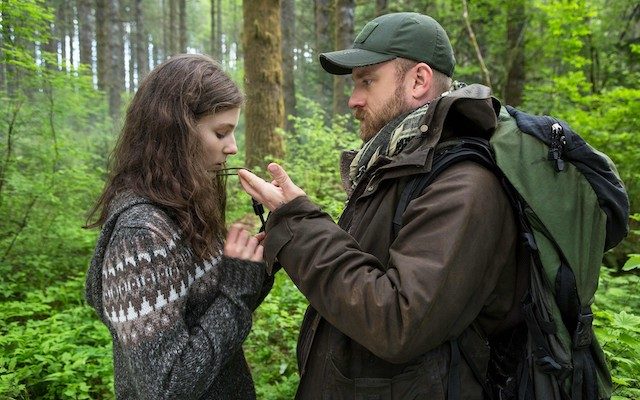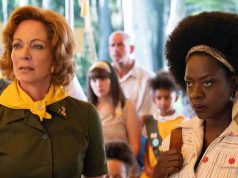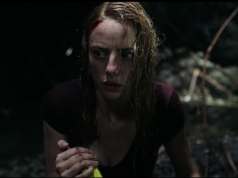
Debra Granik’s third film, “Leave No Trace,” is like her first two — “Down to the Bone” (2004) and “Winter’s Bone” (2010) — in that it’s about a resourceful female facing difficult odds in an isolated, chilly location. But where the others were bleak and dealt with the miserable effects of drug addiction, the latest is lovely, compassionate, and heartbreaking yet life-affirming. It’s about people in precarious circumstances, but it isn’t “gritty” or depressing enough to merit anything stronger than a PG rating.
The setting is Portland’s Forest Park, one of the largest urban parks in America (5,100 acres), with enough off-the-beaten-path wilderness that people with nowhere else to go can live there undetected indefinitely. (The film is based on Peter Rock’s novel “My Abandonment,” which was inspired by a real case.) Will (Ben Foster), a veteran with PTSD, has lived here with his 13-year-old daughter, Tom (Thomasin Harcourt McKenzie) for an unspecific length of time — long enough that they’ve gotten into a happy, comfortable routine sleeping in a tent, collecting rainwater from tarps, even planting a little garden in their corner of the forest.
Inevitably, they’re rousted by rangers and put in touch with social workers. It’s not against the law to be “unhomed,” as the nice government lady Jean (Dana Millican) puts it, but it is illegal to live on public land. Tom should be in school, though Will has done an admirable job homeschooling (tentschooling?) her. Jean gets them set up in a living situation that’s indoors but remote, helps Will get a job on a nearby Christmas tree farm. Tom, starting to meet other kids her age among the farmers, wants to make this work, but her father doesn’t. The sad fact is that Will can’t function in society anymore.
The screenplay, which Granik co-wrote with Anne Rosellini, doesn’t go into detail about Will’s military service or the resulting PTSD, offering just enough data for us to make the inferences. He’s completely devoted to his daughter, who hasn’t been neglected or malnourished living in Forest Park. You get the sense that if outdoor living had made Tom unhappy or unhealthy, Will would have brought her inside long ago. Tom is resilient and self-aware, by no means a victim. But the fact remains that it’s her father’s issues, not hers, that had them living off the grid. The film is about Tom figuring out her own needs, finding her own place in the world, and struggling with how to blend her life with her father’s. It’s about her realizing that, as she puts it, “The same thing wrong with you isn’t wrong with me.”
Compassionate throughout, the film’s emotions really sneak up on you in the end. It’s a story with no villains or antagonists, only internal struggles and people trying to help. Both of the leads do great work — Foster understated and subtle, McKenzie fierce and strong — and there’s also the wonderful Dale Dickey as a woods-dweller who helps them out and seems to understand their desire for isolation. It’s really a lovely movie.
A- (1 hr., 49 min.; )





